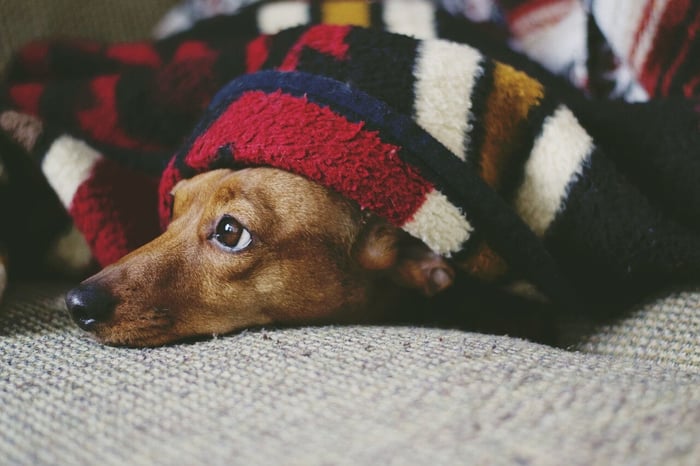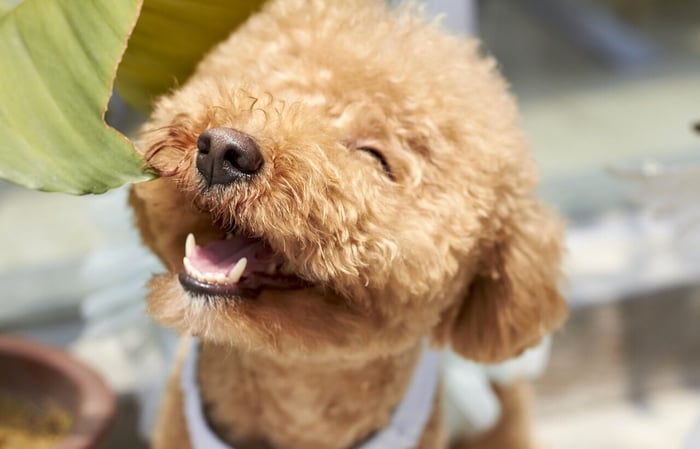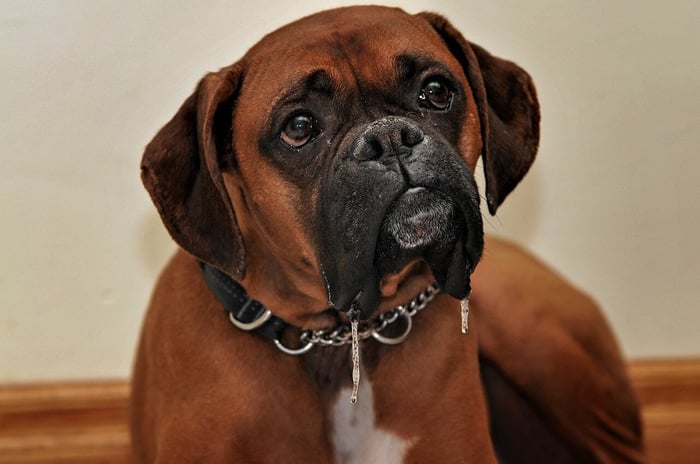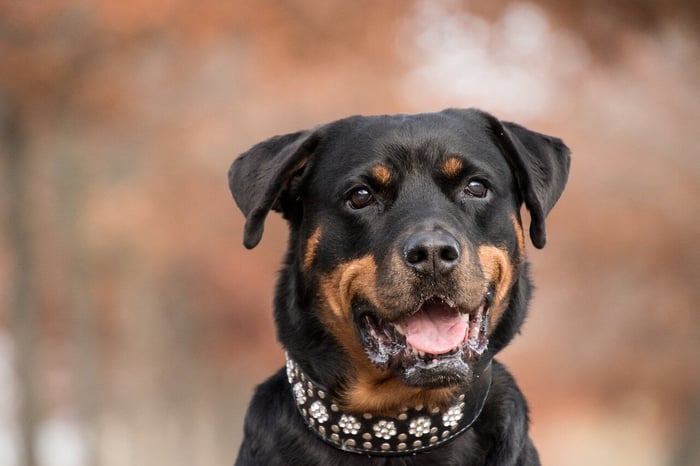The Dachshund, affectionately known as the “wiener dog” or “sausage dog,” is a small but mighty breed that has won hearts around the world. These family dogs are known for their affectionate nature, quirky personalities, and versatile roles as both hunting dogs and beloved companions. Whether you're considering adding a Miniature Dachshund to your family or are simply fascinated by this unique dog breed, this guide covers everything from dachshund temperament to health tips.
Origins and History of the Dachshund Dog
The Dachshund was originally bred in Germany to hunt badgers, hence the name “badger dog” or “Dachshund” in German. These fearless hunters were designed with short legs and long bodies to dig into badger burrows. Over time, their fierce hunting skills made them popular in many dog-loving households across Europe, even winning the favor of royalty like Queen Victoria.
Although they were once fearsome badger hunters, today's Dachshunds have become beloved family pets, known for their charming personalities and unwavering loyalty. They come in two sizes, Standard and Miniature, which makes them suitable for families seeking small dog breeds or medium-sized pets.
Physical Characteristics of the Dachshund: The Wiener Dog Extraordinaire
The Dachshund, affectionately known as the wiener dog, is one of the most recognizable small dog breeds in the world—and for good reason. Originally bred in Germany to hunt badgers and other dangerous prey, the word "Dachshund" literally translates to "badger dog" in the German language. With their long backs, short legs, and alert posture, these little hunters are built for adventure.
Three Unique Coat Types
Dachshunds come in three distinct coat types, each with their own care needs and charming personality:
Smooth-coated Dachshunds (also called smooth-haired) have a sleek, shiny coat and are relatively low-maintenance.
Longhaired Dachshunds—part of the broader group of long haired breeds—have flowing, elegant fur that requires more frequent brushing, especially around the hind legs and chest.
Wire-haired Dachshunds bring a rugged, playful vibe with their coarse outer coat and bushy eyebrows. They’re the most spirited of the three and benefit from regular grooming.
No matter the coat, dachshunds are moderate shedders and thrive best with proper care, including frequent brushing and regular exercise.
Size That Packs Personality
There are two main size variations recognized by the American Kennel Club:
Standard Dachshunds weigh between 16 to 32 pounds and were originally bred to take on wild boar and larger game.
Miniature Dachshunds, or mini dachshunds, weigh under 11 pounds and are better suited for chasing smaller animals or curling up on your lap.
Sometimes you'll hear people refer to a "tweenie"—that sweet spot in between.

Dachshund Size & Types: Which Wiener Dog Is Right for You?
One of the most fun things about Dachshunds is that they come in a variety of sizes and coat types—each with their own unique look and personality. Whether you’re drawn to the pint-sized charm of mini dachshunds or the classic appeal of a standard dachshund, there’s a badger dog for every lifestyle.
Dachshund Sizes
The American Kennel Club recognizes two main sizes:
Standard Dachshund – Weighs between 16 to 32 pounds. Originally bred to hunt badgers and even wild boar, they’re sturdier and more muscular.
Miniature Dachshund – Weighs 11 pounds or less. These smaller pups were bred to chase smaller animals like rabbits and are perfect for apartments or travel-friendly homes.
You might also hear about “tweenies,” a nickname for Dachshunds that fall between mini and standard sizes—not officially recognized, but common in real life!
Dachshund Coat Types
Dachshunds come in three coat types, each with its own grooming needs and flair:
Smooth Coated Dachshunds (also called smooth haired) have short, glossy coats that are easy to maintain.
Longhaired Dachshunds feature elegant, flowing fur. As a long haired breed, they require frequent brushing to prevent mats, especially around the hind legs.
Wire Haired Dachshunds sport a coarser coat with a bushy beard and eyebrows, giving them a rugged, terrier-like appearance. They also need more frequent grooming.
No matter the type, Dachshund dogs are known for their iconic short legs, long backs, and expressive pleading eyes that win hearts instantly.

Dachshund Temperament & Personality: Small Dog, Big Attitude
Don’t let the Dachshund's size fool you—this small dog has a big personality. Known for their independent nature, smart minds, and endearing charm, Dachshund dogs are often described as great pets for families who enjoy a little sass with their snuggles.
These hunting dogs were bred to be bold and determined enough to hunt badgers, foxes, and even wild boar, so it’s no surprise they’re a bit stubborn. That’s not a flaw—it’s just the wiener dog extraordinaire being true to their roots.
Intelligent, Loyal & Sometimes Stubborn
Often ranked among the most smart dogs, Dachshunds are quick learners but may require consistent training and positive reinforcement. Their cleverness also means they know how to get their way—with those pleading eyes, of course.
They can be a bit stubborn, especially if they sense you’re not being firm or fair. But with reward-based training and a little patience, they’ll gladly show off their skills.
Barking, Watchdog Instincts & Social Behavior
Dachshunds are known for their loud bark and excellent watchdog instincts. While some might see this as excessive barking, they’re simply trying to protect their family members—and they take their job seriously. With proper socialization, they do well with other dogs and even other pets, but they may be wary of smaller animals due to their hunting breed instincts.
These dogs thrive in households with older children who understand how to handle them gently, as rough handling can lead to anxiety or defensiveness. While they’re generally affectionate with family members, they may not always enjoy the unpredictable energy of young kids or small children without proper care and socialization.
Common Health Issues in Dachshunds
Like many purebred dogs, Dachshunds are prone to certain health problems. One of the most common concerns is Intervertebral Disc Disease (IVDD), which stems from their long spine and short legs. Owners should be careful to prevent excessive jumping, which can exacerbate back problems. Investing in ramps and ergonomic dog beds can help reduce the strain on their spines.
Are Dachshunds Hypoallergenic?
No. Dachshunds are not hypoallergenic. Even though some shed less than other breeds, all Dachshunds produce allergen proteins found in dander (dead skin flakes), saliva, and urine, which are the real triggers for pet allergies—not the fur itself.
Why Dachshunds can cause allergies
Allergens stick to fur and skin, then spread through the home as dogs move, shed, and groom themselves.
All coat types—smooth-haired, long-haired, and wire-haired Dachshunds—produce similar allergens. Coat length or texture does not make a Dachshund hypoallergenic.
Self-grooming spreads saliva proteins onto the coat, which then transfer to furniture, bedding, and carpets.
Can allergic people live with a Dachshund?
Some people with mild allergies can manage symptoms by:
Bathing and grooming the dog regularly
Using HEPA air purifiers and vacuum filters
Washing dog beds, blankets, and covers frequently
Keeping the dog out of bedrooms and off upholstered furniture
However, no Dachshund is allergy-safe, and results vary by individual sensitivity.
Diet and Nutrition for Dachshund Puppies
To ensure a healthy breed, it's essential to pay attention to a Dachshund's diet. Feeding them high-quality dry kibble with real meat as the primary ingredient is a good start. Avoid overfeeding or giving them too many high-fat treats, as weight gain can lead to more health problems, especially for their spine. Dachshunds can benefit from nutritional supplements like Omega-3 fatty acids and glucosamine to support joint health, but always consult with your vet before adding supplements to their diet.

Essential Accessories for Your Dachshund
You've got the basics down—from what to feed your Dachshund to understanding their unique health needs. Now let’s talk about those extra items that will make your life, and your Dachshund’s life, a whole lot easier and enjoyable.
Dog Bed
It's no secret that Dachshunds are prone to back issues. That's why investing in a high-quality dog bed designed to provide proper spinal support is so important. Look for dog beds that offer memory foam layers and an ergonomic design to keep that elongated back comfortable.
Festive Classic Tartan Cozy Dog Anti-Anxiety Calming Bed

$58.99
Designed with affection for your four-legged family members, this bed merges the quaint allure of tradition with contemporary comforts. It's a lovingly crafted retreat where sophistication and serenity meet, thoughtfully created to give every beloved dog their own cozy corner… read more
Dog Carriers
While Dachshunds love to walk, sometimes it's just not feasible. Whether you're traveling or need to bring your pup to the vet, a well-designed dog car seat can reduce stress for you and your pup on the road, but choose one that's well-ventilated, comfortable, and secure. Or you can equip your dog with a car seat belt to keep him safe on the road.
Urban Voyager Dog Car Booster Bed

$99.99
Transform your pet's travel with the Urban Voyager Faux Leather Car Seat Bed. Engineered for safety and style, it offers comfort and versatility both on the road and at home. Safety First: Multi-point structural support and high-density padding stabilize your… read more
Harness and Leash
Given their unique body shape, a dog harness is generally recommended over a traditional collar for Dachshunds. This can help prevent any strain on their delicate spine during walks. Couple this with a sturdy, yet lightweight leash for those joyful walks around the neighborhood.
Chew Toys
Chewing is a natural instinct for dogs, and Dachshunds are no different. However, you want to make sure that you’re providing safe and durable chew toys that can also benefit their dental health. Just remember to monitor them while they're chomping away to ensure their safety.
Cute Duck Plush Toy With Squeaker Dog Chew Toy

$9.99
Give your friend joy with our Cute Duck Plush Toy With Squeaker. This delightful dog chew toy is designed to entertain and captivate dogs of all sizes. Charming Duck Design: The plush toys cute duck design is sure to charm… read more
Grooming Supplies
Depending on your Dachshund's coat type—be it smooth, longhaired, or wirehaired—different grooming tools will be needed. Brushes, combs, and even specific types of shampoos can make a huge difference in keeping your Dachshund looking and feeling their best.
Conclusion
From their iconic silhouette to their bold, lovable personalities, Dachshunds—aka the wiener dog extraordinaire—have captured the hearts of families around the world. Whether you’re drawn to the charm of a miniature dachshund, the elegance of longhaired dachshunds, or the spunky attitude of a wire haired variety, this small but mighty breed is full of surprises.
Bred originally as a hunting dog to hunt badgers and even wild boar, the Dachshund dog is both courageous and clever. Today, they’re just as happy snuggling on the couch as they are showing off their loud bark to protect their people. With their pleading eyes, drop ears, and endearing nature, it’s easy to see why these dogs are such popular companions.
Of course, proper care, a balanced diet, and a few essential accessories go a long way in keeping your Dachshund healthy, happy, and safe—especially when it comes to preventing intervertebral disc disease and managing their independent nature.










